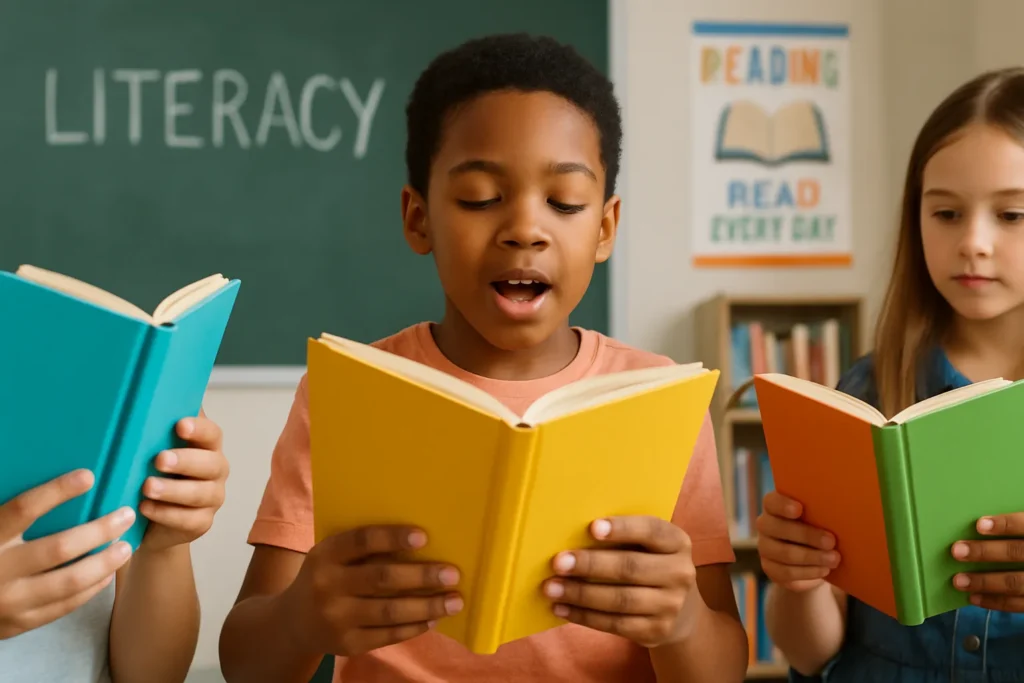The Price of Philanthropy: Why Basic Literacy Still Needs Charity
Walk into almost any small town from Florida to West Virginia, and you might spot the familiar yellow-and-black sign of Dollar General. Lately, though, behind every point-of-purchase display for affordable laundry soap, there’s another story unfolding—one that reveals both the promise and the paradox of American charitable giving. The Dollar General Literacy Foundation (DGLF) has just announced a record $13.2 million in literacy grants across 48 states, funding everything from summer reading camps in Alabama to adult ESL programs in Arkansas.
The magnitude arches across the Southeast: $370,000 awarded in Florida, $290,000 in Alabama, $215,000 in South Carolina, more than $170,000 in Northeast Arkansas, and over $65,000 in West Virginia. Funding is targeted at public schools, libraries, and non-profits sitting within 15 miles of one of the company’s ubiquitous stores. The grants will stock bookshelves, equip classrooms with new software, and provide local libraries with much-needed technology.
It all sounds laudable. Every dollar will surely help, especially when it means organizations such as the Fayette County Family Resource Network and Richwood Public Library in West Virginia can build new programs for children and adults alike. DGLF Executive Director Denine Torr spoke of this commitment to “helping students, educators, and communities thrive.” And who could possibly argue against stamping out illiteracy?
Charitable Gifts or Corporate Safety Net? The Socioeconomic Backdrop of Literacy Funding
A closer look reveals a persistent reality: public education’s most basic obligations are increasingly shouldered by corporations, not governments. According to the National Center for Education Statistics, roughly 21% of American adults—about 43 million people—struggle with basic literacy. This isn’t merely a reading issue, but a public health and workforce crisis that ripples through generations. Since 1993, Dollar General’s foundation has funneled over $271 million into literacy grants, impacting more than 23 million people. That’s an astounding figure, but it also begs a fundamental question: Why should corporations be filling the gaps left by crumbling public investment?
Look at the recipients. Libraries like The One Room School House Project Inc. in Florida and countless rural community resource centers received grants as modest as $3,000. While each of these gifts enables an important program or new batch of books, there’s a certain bleakness in celebrating charity as a remedy for systemic neglect. As education funding remains politicized in state legislatures—and as conservative lawmakers tout budget “responsibility” over investing in children’s futures—rural and low-income Americans are left to rely on the largesse of the very retail chains that profit from their limited consumer choices.
Harvard sociologist Sara Goldrick-Rab warns of “philanthropic fill-ins,” where inconsistent charitable giving replaces what should be a dependable public guarantee. “We don’t ask Walmart to pave our highways,” she notes. “Why do we accept that basic literacy is a corporate responsibility?” These
“Philanthropy’s feel-good stories too often mask political failures to provide education as a right, not a consumer good.”
An honest conversation is overdue about why the richest nation on earth still depends on checkout counter donations to ensure its children—and its workers—can read.
Communities in the Crosshairs: Policy Encounters and the Future of Funding
Beyond that, the strategic targeting of communities “within 15 miles of Dollar General stores” signals more than generosity. It plants the seeds of a modern company town, where basic rights—access to books, literacy education, even broadband—arrive not through civic infrastructure, but through dependence on store proximity. When the ability to access books or literacy software is mapped to store locations, who’s left out in sprawling rural America or urban “literacy deserts”?
Relying on retail philanthropy to underwrite public services is a double-edged sword. Yes, these grants matter—especially as conservative policymakers in statehouses gut library budgets or resist investment in early childhood education, arguing that “the private sector” will fill the void. Yet the volatility of such funding is profound. Will next year’s “Yellow Glasses” campaign—Dollar General’s annual summer promotion, in which customers buy $2 sunglasses to benefit the foundation—keep literacy programs afloat, or will donations dry up as economic winds shift?
Long term, real progress demands a recommitment to fully funded public education. This isn’t just about restoring library budgets or mandating a longer school year. It’s about treating literacy not as a charitable favor, but as a basic civil right—one linked to democracy, health outcomes, and equitable access to opportunity. As the Literacy Research Association argues, “When policy does not invest in the public good, private actors shape who learns, who leads, and who thrives.”
What’s more, historical precedent offers little reassurance that philanthropic patchwork will suffice. During the New Deal era, federal programs like the Works Progress Administration trained millions and built libraries from the ground up—demonstrating what’s possible when public resources meet public needs. Compare that vision to today’s reality: millions of Americans depending on a retail chain’s charity bin to guarantee the most fundamental tool of learning.
Redefining Literacy as a Public Good
Every child who receives a book, every adult who learns to read, deserves a world where such interventions aren’t dependent on the whims of corporate largesse. The root issue remains clear: Literacy is a right, not a raffle prize funded by receipts at the register. Instead of outsourcing this responsibility to corporations—however well-intentioned—our lawmakers and community leaders must build, not just fund, a sustainable future.
Dollar General and its Foundation deserve recognition for stepping in where government has failed. Yet their generosity should renew—not replace—our commitment to robust, equitable public investment in education. Until then, the spectacle of checkout charity will remain a testament to both Americans’ boundless generosity and its persistent, preventable educational inequity. The real legacy of the DGLF’s record-setting donation will be measured not by the number of yellow sunglasses sold next month, but by whether we choose to demand more—of our democracy, and of ourselves.

